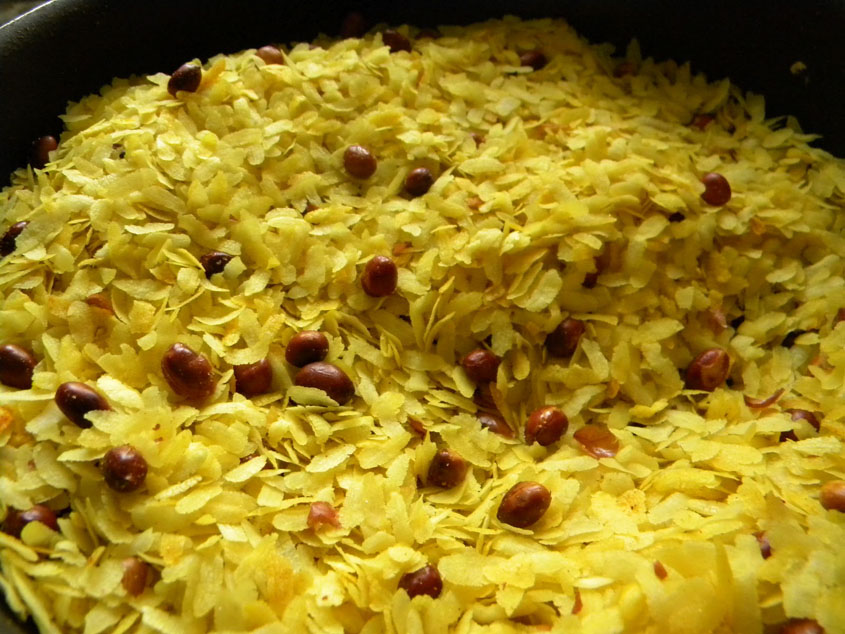Smugglers have always been known to come up with ingenious ways of smuggling various items in and out of the country. From hidden pockets in bags to rectum concealment to stashing things in pagdis, the ways detected by the customs department till now are many. But now, they aren’t leaving behind food items too.
The next time you travel abroad, and have a packet of snacks opened and checked thoroughly, don’t be surprised.
This week, the customs department at Mumbai’s Chhatrapati Shivaji International Airport seized a whopping Rs 2.85 crore from a single passenger, who had concealed notes of various currencies in his chivda packet. Chivda is an Indian snack of rice flakes and farsan, specially liked in western India.
“Before that, we found someone smuggling currency in a packet of shev. We heard that recently, the Delhi airport customs officials found gold concealed in papaya. All these things have made us all the more cautious,” a customs official told The Sunday Guardian.
As Diwali approaches this month-end, the customs department is also keeping its eyes wide open for nabbing gold smugglers.
Two years ago, the Mumbai airport customs department alone seized 1,000 kilograms of gold.
The proportion has come down by 60% to 70% in these two years, officials said. But what has gone up drastically is the smuggling of foreign currency for hawala route payment for smuggling of gold through India’s porous borders.
“In the past six months, we have seized foreign currency worth Rs 6 crore, which was being transferred through the hawala route,” an official said.
Generally, the modus operandi involves smugglers identifying a needy person who has financial
“In this case, where we seized foreign currency worth Rs 2.85 crore, the youth who was caught was a frustrated young jeweller who was already reeling under debt. The smugglers promised that they would set up a jewellery shop for him. He was taking money to Dubai to pay for the orders placed by various jewellers for gold,” the official said.
Of the foreign currency seized, three lakh were American dollars, 1.62 lakh were Saudi riyals, and the other currency were a few hundred dinars of Kuwait, Bahrain and UAE.
The smuggling of gold through airways has reduced drastically in the past two years, a customs official said.
“Earlier, major airports used to seize hundreds of kilograms of gold every year. Now, the smugglers have changed their strategy, so gold seizure has come down by 70% to 90% at many airports,” he pointed out. Now, gold is smuggled through the porous borders of Myanmar and Bangladesh in India.
“The borders with these countries are not sealed. There is a lot of scope for sneaking in and sending things through such places. Gold is sent through these two countries to Kolkata. From there, it travels via road, rail or air to various important cities. Since most of the best gold artisans are located in Mumbai and Kolkata, the raw gold bars have to travel to one of these two cities. Mumbai also has a thriving Zaveri Bazaar. As a Central excise duty has been levied on gold, the jewellers prefer not to procure gold legally,” he said.
The domestic transfer of gold is difficult for the authorities to detect, even when it is smuggled through the airway. “The checking during domestic travel is not so stringent. So such cases can slip by,” he said.

